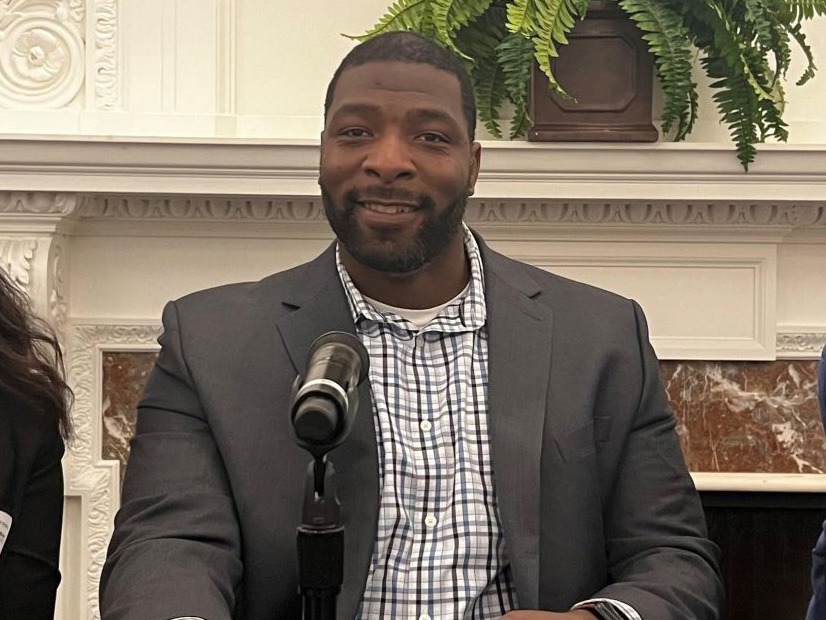The National Association of Regulatory Utility Commissioners hosted a webinar last week with FERC Senior Counsel on Environmental Justice and Equity Conrad Bolston, who explained how the commission has been stepping up its work around environmental justice since 2021.
Bolston took over the role in March after Montina Cole, the first person with the job, left late last year. Working out of the Office of the General Counsel, Bolston leads a small team focused on the subject.
“My primary mission is to provide leadership and steer implementation of environmental justice and equity policies, principles, practices and procedures at the commission,” he said.
Sometimes “Diversity, Equity and Inclusion” is conflated with environmental justice, but Bolston’s work is focused on the latter exclusively.
“On a day-to-day [basis], that might mean assisting in reviewing and editing documents, from NEPA [National Environmental Policy Act] documents to orders, draft rules [and] policies, or holding trainings and outreach like the one we’re having here today,” he added.
Environmental justice has a number of definitions, but Bolston said it means ensuring citizens are treated fairly regardless of their racial, economic and national backgrounds, or any other attributes when it comes to environmental regulation.
President Joe Biden in April issued Executive Order 14096 on recommitting the U.S. to environmental justice, which it defines as “the just treatment and meaningful involvement of all people, regardless of income, race, color, national origin, tribal affiliation or disability in agency decision-making and other federal activities that affect human health and the environment.”
The order explains the goal will be achieved when everyone enjoys the same degree of protection from environmental and health hazards, and equal access to the decision-making process.
As an independent agency, FERC voluntarily has complied with that and related executive orders, with both Chair Willie Phillips and his predecessor, Richard Glick, making it a priority, Bolston said. Under Glick, FERC released an equity action plan, which laid out its goals for improving equity and environmental justice in its processes.
A related term is “energy justice,” which has been defined by the Department of Energy as “the goal of achieving equity in both the social and economic participation in the energy system while also remediating social, economic and health burdens on those disproportionately harmed by the energy system,” Bolston said.
“I think if there’s a common theme, it’s that some communities face systemic barriers that are either procedural or substantive that might result in inequitable regulation,” he added. “And I think that achieving fair regulation and just regulation necessitates acknowledging the systemic barriers and tackling them head on.”
FERC has been increasing its work in the area broadly, not just on the team Bolston leads in the Office of General Counsel. The Office of Public Participation (OPP), founded in 2021, reaches out to the general public, and the Office of External Affairs is the chief contact with Congress, states, tribes and other levels of government. The Office of Energy Projects, which reviews natural gas and hydropower infrastructure, has its own groups dedicated to public outreach and environmental justice, Bolston said.
OPP is focused on community outreach and engagement, education and technical assistance, lowering barriers to public participation before the commission and internally advocating for improved public accessibility. The office is non-decisional, which means its staff can talk about all the issues before the regulator, Bolston said. The office helps everyday citizens better understand the complex issues FERC deals with so they can be better involved in its work.
The recent focus on these issues has made a mark on FERC’s NEPA documents, its environmental reporting and even the orders it issues, Bolston said.
“That’s not to pat the commission on the back and say that ‘we’re done with our work’; it’s just more of a way to level set for anyone out there that hasn’t seen any of these analyses, or maybe hasn’t seen the evolution,” Bolston said.
One of the more high-profile steps FERC has taken on the issue was to hold an environmental justice roundtable this year, on which it has taken comments. (See FERC Gets Advice, Criticism on Environmental Justice.)
“Those comments are not going to lie in some docket and never be seen,” Bolston said. “We actually read all the comments. We’re in the process of ingesting those comments and summarizing them. We’re in the process of taking those comments and adjusting our policies, practices and procedures, both internally and potentially externally.”




